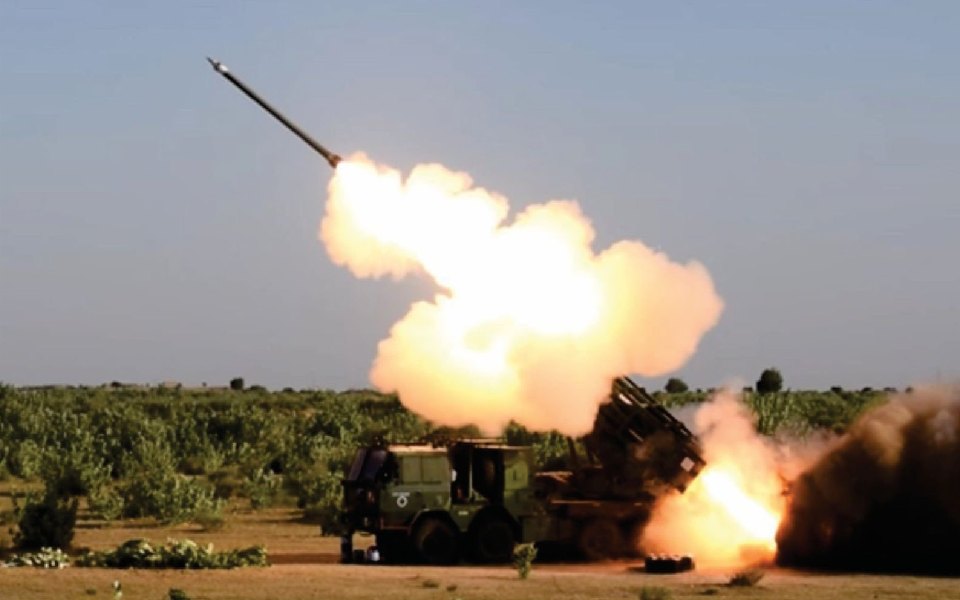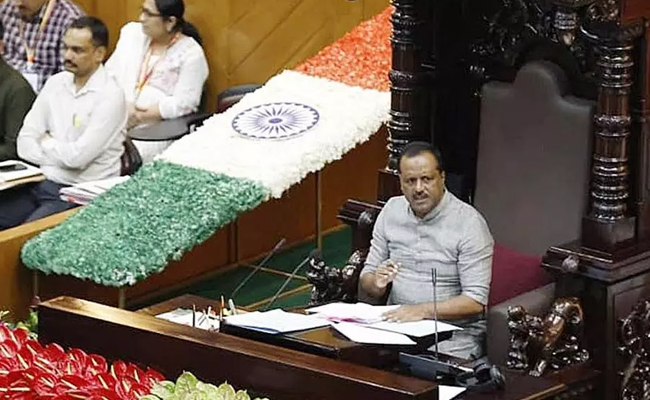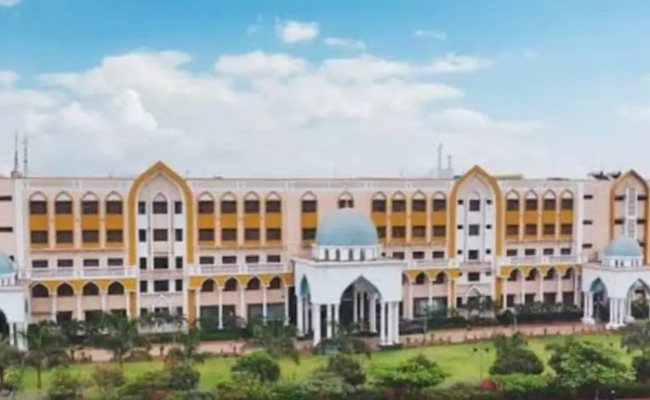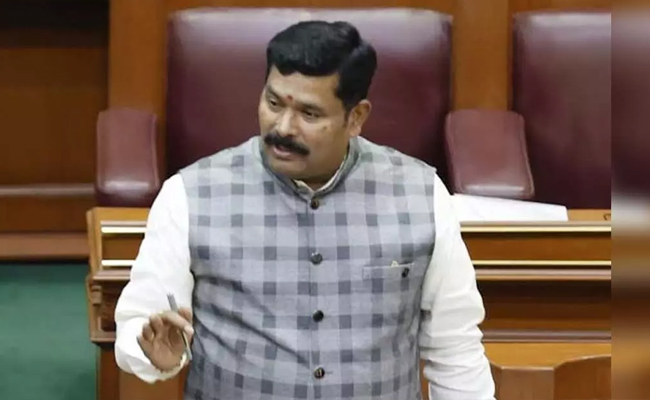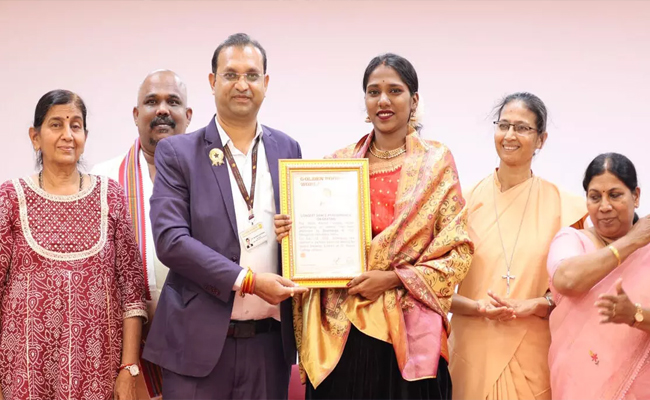New Delhi, Nov 14: India has successfully completed the flight-tests of guided Pinaka weapon system as part of a set of validation trials.
During these tests, the Provisional Staff Qualitative Requirements (PSQR) parameters, viz., ranging, accuracy, consistency and rate of fire for multiple target engagement in a salvo mode have been assessed by extensive testing of rockets, the Defence Ministry said in a statement.
"Defence Research and Development Organisation (DRDO) has successfully completed the flight-tests of Guided Pinaka Weapon System as part of Provisional Staff Qualitative Requirements (PSQR) validation trials," it said.
The flight-tests have been conducted in three phases at different field firing ranges.
"Twelve rockets from each production agency from two in-service Pinaka launchers upgraded by the launcher production agencies have been tested," the statement said.
Defence Minister Rajnath Singh has complimented the DRDO and the Indian Army for the successful PSQR validation trials of the system and stated that the induction of this Guided Pinaka Weapon System will further boost the artillery fire power of the Armed Forces, it said.
The precision strike variant for Pinaka Multiple Launch Rocket System is a totally indigenous weapon system designed and developed by Armament Research and Development Establishment in association with Research Centre Imarat, Defence Research and Development Laboratory, High Energy Materials Research Laboratory and Proof & Experimental Establishment with Munitions India Limited and Economic Explosives Limited as production agencies for ammunition and Tata Advanced Systems Limited and Larsen & Toubro for Pinaka launcher and Battery Command Post.
Secretary, Department of Defence R&D and Chairman, DRDO, Samir V Kamat, also congratulated the teams associated with the trials and said the rocket system has "completed all pre-requisite flight trials before induction into the Indian Army".
DRDO has successfully completed the Flight Tests of Guided #Pinaka Weapon System. Various parameters such as ranging, accuracy, consistency and rate of fire for multiple target engagement in a salvo mode were assessed during the trials. The tests were conducted in three phases at… pic.twitter.com/qVtq4MqCse
— Ministry of Defence, Government of India (@SpokespersonMoD) November 14, 2024
Let the Truth be known. If you read VB and like VB, please be a VB Supporter and Help us deliver the Truth to one and all.
Belagavi: Speaker U.T. Khader on Friday warned that members who disrupt Assembly proceedings by talking in their seats during debates will be made to sit in the House for an entire day as a disciplinary measure.
The warning came after the Question Hour, when Deputy Leader of the Opposition Arvind Bellad was permitted to initiate a discussion on the development of North Karnataka.
At this point, expelled BJP MLA Basanagouda Patil Yatnal objected, stating that he had been seeking a debate for the past three days but had not been given an opportunity.
ALSO READ: IndiGo board ropes in external aviation expert for flight disruption probe
Responding to the objection, Speaker Khader said Bellad had already been granted permission and assured Yatnal that he would be allowed to speak at the next opportunity. He noted that even as a serious discussion was underway, several MLAs were speaking among themselves with their microphones on, disrupting the proceedings.
Expressing displeasure over the conduct of members, Khader likened the situation to football, where players receive red, yellow, or white cards for violations. Similarly, he said, the Assembly issues warning cards to members who disturb the House. If they fail to correct themselves despite repeated warnings, they would be required to remain seated in the Assembly hall for a full day as punishment, he stated.

